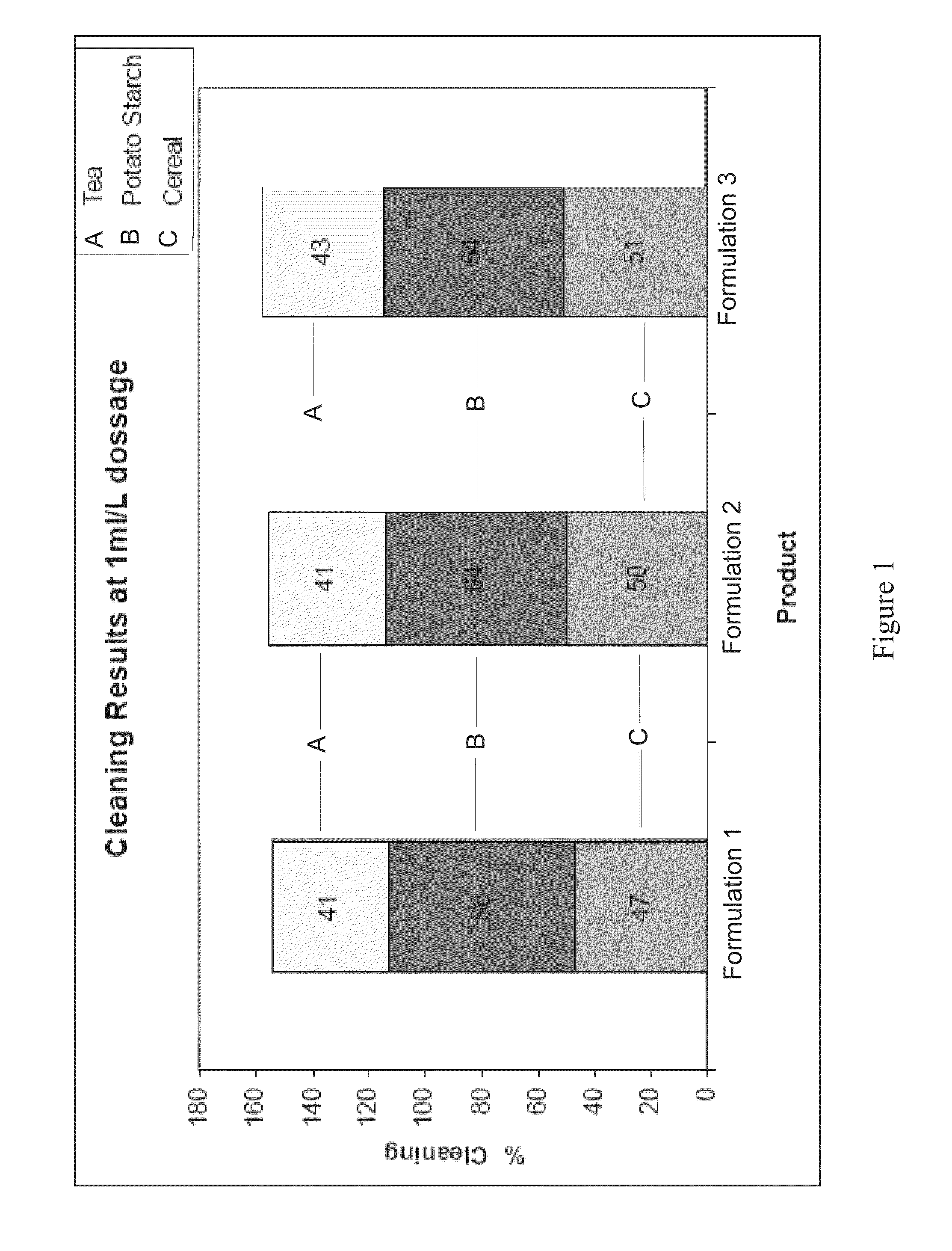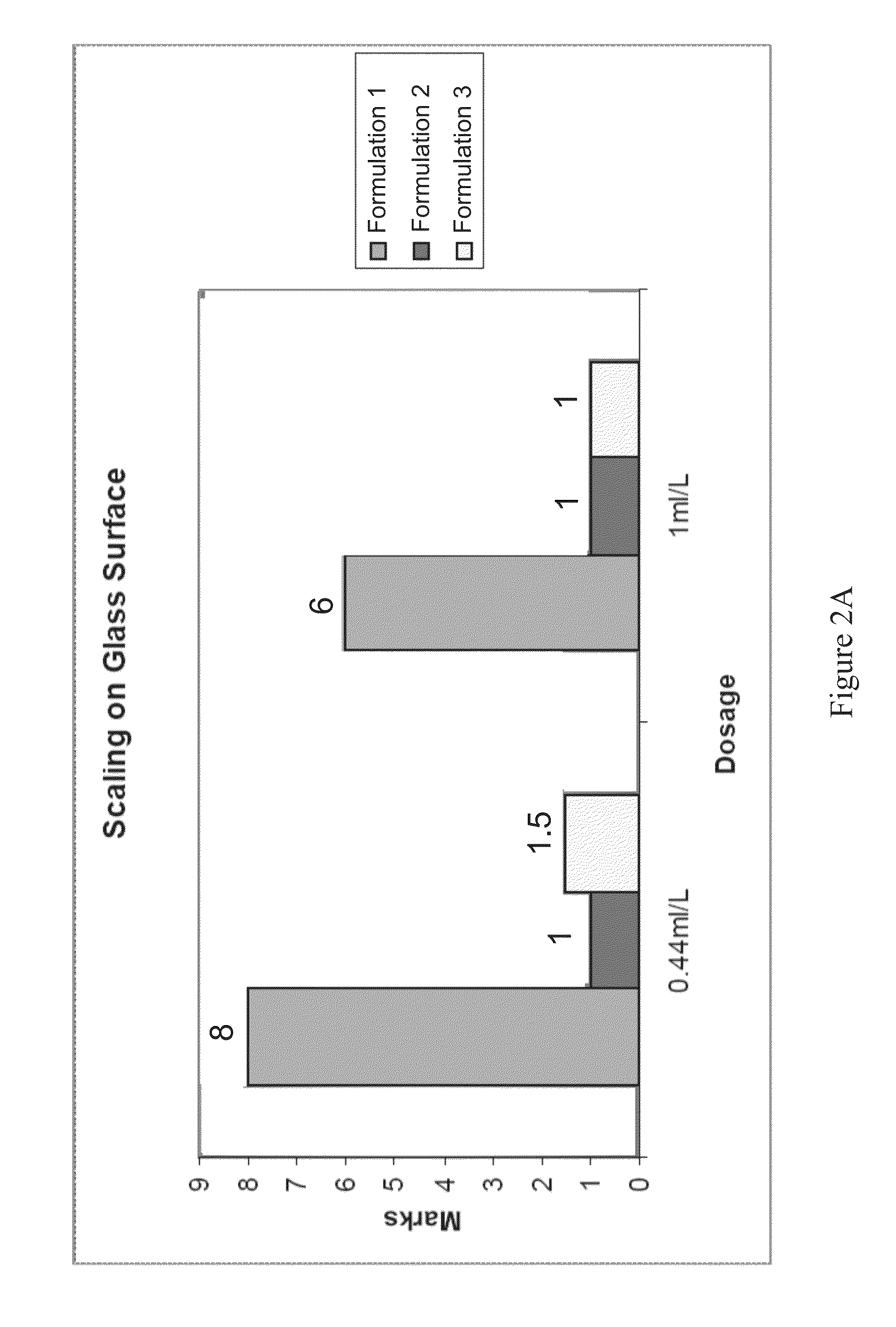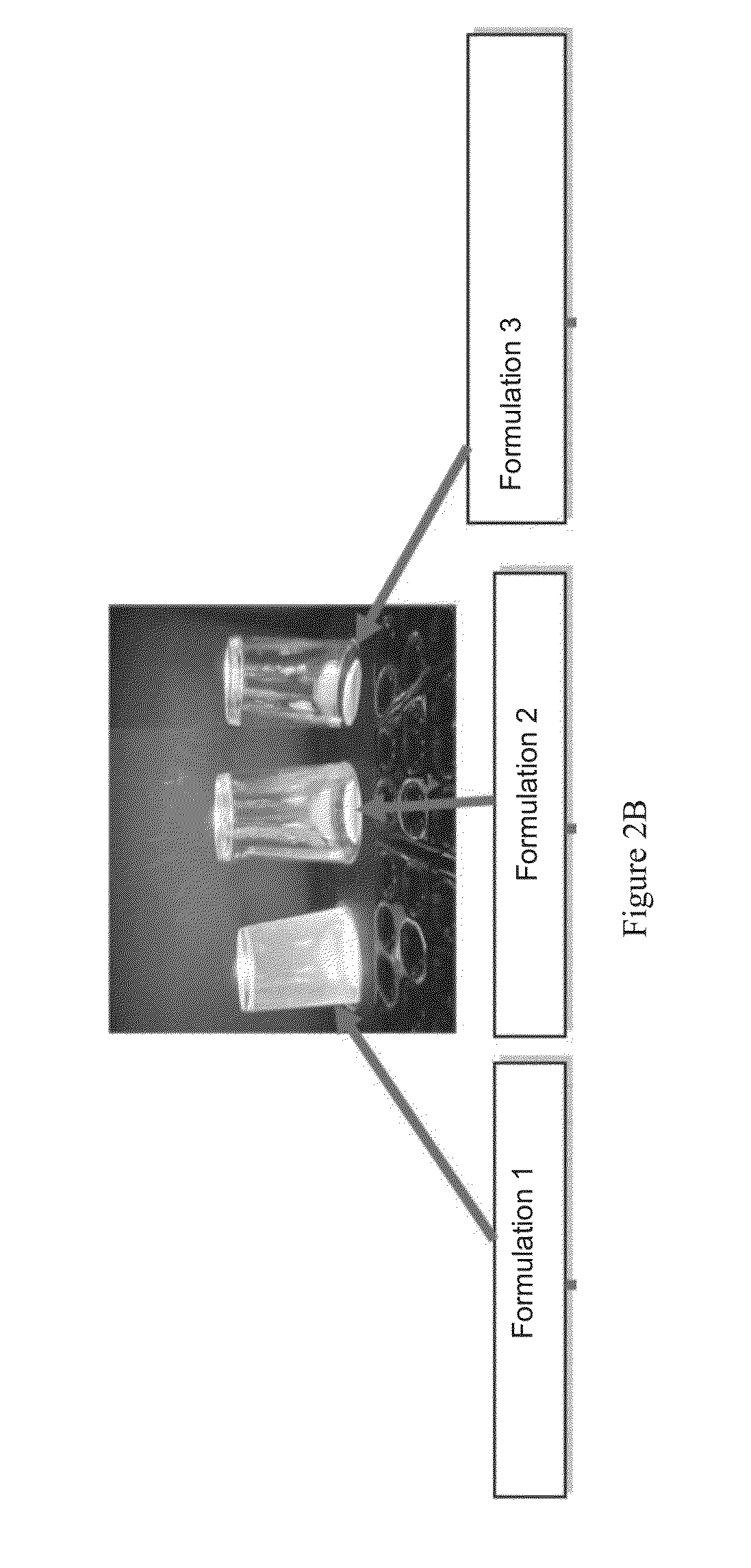Scale-inhibition compositions and methods of making and using the same
a composition and scale inhibitor technology, applied in the field of scale inhibitor compositions, can solve the problems of scale formation on substrates, affecting cleaning efficacy, and affecting cleaning efficiency, and achieve the effect of reducing scale formation
- Summary
- Abstract
- Description
- Claims
- Application Information
AI Technical Summary
Benefits of technology
Problems solved by technology
Method used
Image
Examples
example 1
Measurement of Scale Inhibition by Filtration Method
[0053]An aqueous calcium acetate solution (10 gm / L) was prepared. Sodium bicarbonate (1% solution) was added to 400 mL of the calcium acetate aqueous solution to form a hard water solution having a water hardness of about 500 ppm. Aqueous stock solutions including each of the sequestrating agents identified in Table 1 (at 10%) were prepared. The aqueous stock solution also contained 20% sodium hydroxide. An aliquot of a sequestrating agent stock solution (“Active”) was then added (2.5 g / L) to the hard water solution, and the mixture was heated to 80-85° C. with constant stirring. The mixture was then cooled to room temperature and filtered using Whatman-42 filter paper (previously weighed). The filter paper was dried at 105° C. for 3 hours and the weight of the precipitate from the mixture was determined. A blank was prepared in a similar manner without the sequestrating agent (“Blank”). The percentage scale inhibition for each age...
example 2
Scale Inhibition Under Soiling Condition
[0060]An aqueous calcium acetate solution (10 gm / L) was prepared. Sodium bicarbonate (1% solution) was added to 400 mL of the calcium acetate aqueous solution to form a hard water solution having a water hardness of about 500 ppm. The hard water solution (500 mL) was placed in glass beakers, and soya oil (1%) was added. Formulations in Table 4 and 5 were prepared and were added separately to the hard water solution. Each solution was stirred continuously at 164 rpm for 50 hours at 60° C. The scale deposits were measured from the weight of the beakers. Table 4 shows the results using formulations 1-3 at 2.5 ml per liter (representative of hard-water detergent formulations). Table 5 shows the results using formulations 4-6 at 5 ml per liter (representative of soft-water detergent formulations).
[0061]
TABLE 4ActiveAmount % Weight of ScaleFormulationingredients(wt / wt)(grams)1Sodium Hydroxide10%0.16NTA20%ATMP 1%Waterbalance2Sodium Hydroxide10%0.20MG...
example 3
Cleaning and Scale Inhibition Under Machine Ware Wash Conditions
[0064]The performance of the scale-inhibition composition was tested under actual machine ware wash conditions, and the results were compared to the NTA-based or MGDA-based compositions as follows. The cleaning and scale inhibition performances of various formulations was determined in a single tank dishwasher using artificially soiled loads and fixed assessment scales. A Elextrolux D48 or Elextrolux Wash Tech 60 single tank dishwasher machine was employed. White undecorated dessert plates (Ø=21.5 cm, Jos ten Berg), white undecorated tea-cups (Ø=21.5 cm, h=6.8 cm, Mosa Maastricht), and white undecorated Arcopal tea-cups (Ø=7.8 cm, h=6.3 cm, ARCOPAL France) were used as substrates. The substrates were soiled with breakfast cereal, mashed potatoes, or tea. All soiled articles were stored at 30° C. and 60% relative humidity for 16 to 20 hours. The soiled substrates were then cleaned at 55° C. in the dishwasher machine with...
PUM
| Property | Measurement | Unit |
|---|---|---|
| wavelength range | aaaaa | aaaaa |
| average molecular weight | aaaaa | aaaaa |
| temperature | aaaaa | aaaaa |
Abstract
Description
Claims
Application Information
 Login to View More
Login to View More - R&D
- Intellectual Property
- Life Sciences
- Materials
- Tech Scout
- Unparalleled Data Quality
- Higher Quality Content
- 60% Fewer Hallucinations
Browse by: Latest US Patents, China's latest patents, Technical Efficacy Thesaurus, Application Domain, Technology Topic, Popular Technical Reports.
© 2025 PatSnap. All rights reserved.Legal|Privacy policy|Modern Slavery Act Transparency Statement|Sitemap|About US| Contact US: help@patsnap.com



